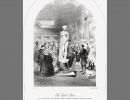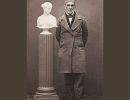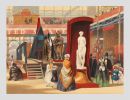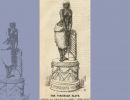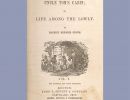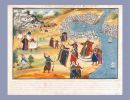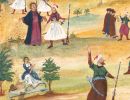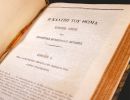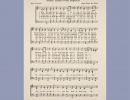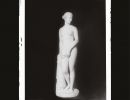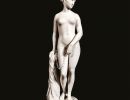The Plight of Greece and Abolitionism
Americans saw the Greek War of Independence as symbolic of debates going on in America about slavery, bringing their own domestic anxieties and concerns to bear on the Greek conflict.
Black observers in the United States were the first to link the Greek revolution to American slavery. This black version of Philhellenism appeared in the most important black abolitionist text of the 1820s - David Walker’s Appeal to the Coloured Citizens of the World. Yet, for African American and white abolitionists, the Ottoman political oppression of the Greeks and the sale of Greek women and children into slavery paled in comparison to the horrors of slavery in the American South.
Similar criticisms of racism and hypocrisy were raised at the ecstatic reception of The Greek Slave. The statue received a sarcastic review in Frederick Douglass’ North Star newspaper: “We pity and love the poor outraged Greek slave-girl... And to the feeling heart and discerning eye, ALL SLAVE GIRLS ARE GREEK AND ALL SLAVE MUNGERS TURKS, wicked cruel and hateful; be their names Hassam, Selim, James or Henry.”
-
slavery
The Greek Slave was one of the most famous sculptures ever carved by an American artist. Made in Florence by Hiram Powers between 1841 and 1843, the life-size female nude represents a Greek girl stripped and chained at a slave market, an allusion to the atrocities that the Ottomans committed during the Greek War of Independence. By implication, it was soon linked to the ongoing debate over slavery in the United States.
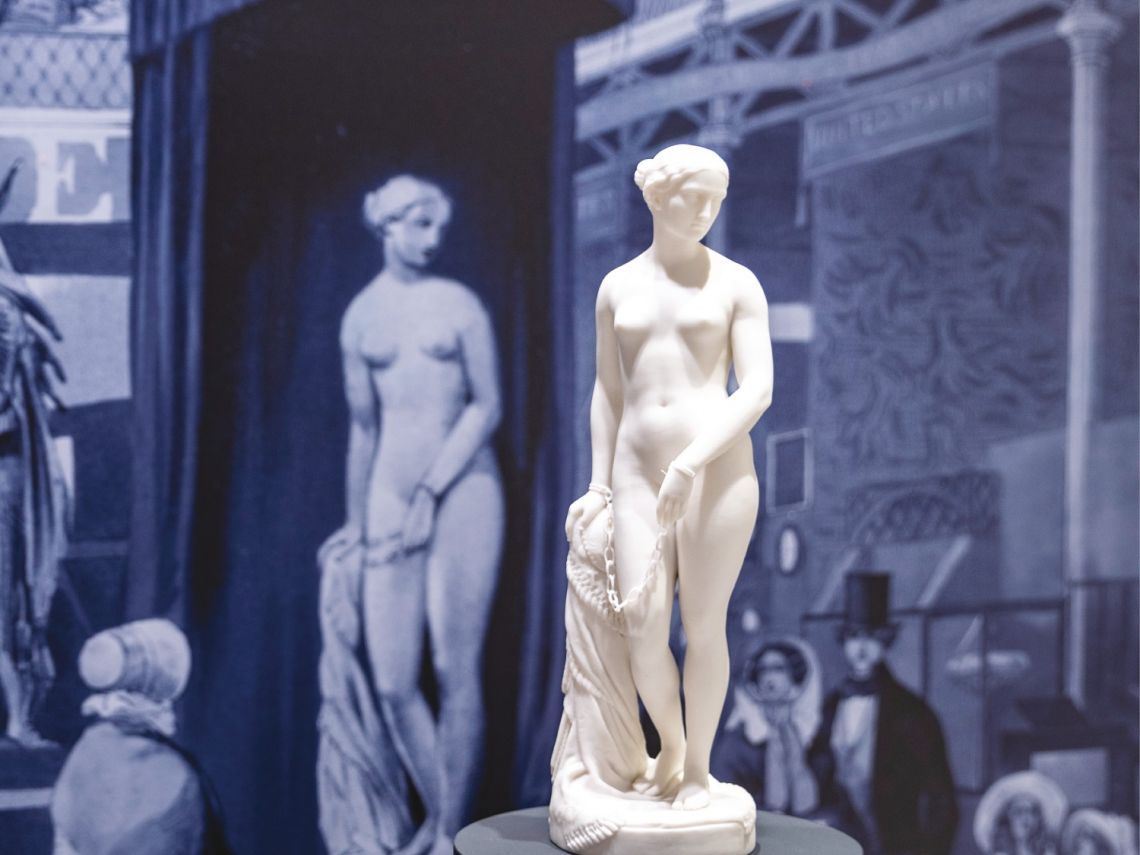
-
slavery2
The Greek Slave toured American cities from Boston to New Orleans between 1847 and 1849, and again into the 1850s, where it drew huge crowds and brought forth, alternatively, outpourings of protest and praise.
R. Thew, “The Greek Slave from the original statue at the Dusseldorf Gallery (New York),” Cosmopolitan Art Journal, 1857.
Engraving. Library of Congress
-
slavery3
Hiram Powers. Vintage photo.
GraphicaArtis/Corbis
-
slavery4
The Greek Slave was also a centerpiece of the United States display at the Great Exhibition in 1851.
John Absolon, View in the East Nave (The Greek Slave, by Powers; from Recollections of the Great Exhibition). Day & Son Ltd. (London 1851).
The Metropolitan Museum of Art
-
slavery5
John Tenniel, The Virginian Slave, 1851. Punch Limited

-
slavery6
First edition of Harriet Beecher Stowe, Uncle Tom’s Cabin; Or, Life Among the Lowly, Boston 1852.
Wikimedia Commons
-
slavery7
Dimitrios Zographos, Fall of Constantinople, 1836—1839. Watercolor illustrating the Memoirs of General Ioannes Makrigiannis.
Gennadius Library, American School of Classical Studies at Athens
-
slavery8
Dimitrios Zographos, Fall of Constantinople, 1836 - 1839. Watercolor.
Close up of Greece in shackles
Gennadius Library, American School of Classical Studies at Athens
-
slavery9
Greek translation of Harriet Beecher Stowe's Uncle Tom's Cabin by Ioannis Karasoutsos, published in the journal "Pandora" in 1860.
Gennadius Library, American School of Classical Studies at Athens
-
slavery10
The "Battle Hymn of the Republic" is a popular American patriotic song by the abolitionist writer Julia Ward Howe, wife of Samuel Gridley Howe, written in 1861.
Wikimedia Commons
-
slavery11
Hiram Powers, The Greek Slave, ca. 1900–1912. Photograph from a glass-plate negative. Detroit Publishing Co.
Library of Congress
-
slavery12
The Greek Slave, Parian porcelain by Minton, replica of the famous statue by the American sculptor Hiram Powers (1848). Height 35.5 cm.
Gennadius Library, American School of Classical Studies at Athens
-
slavery13
The Greek Slave, Parian porcelain by Minton, replica of the famous statue by the American sculptor Hiram Powers (1848). Height 35.5 cm.
Gennadius Library, American School of Classical Studies at Athens
The Greek Slave was one of the most famous sculptures ever carved by an American artist. Made in Florence by Hiram Powers between 1841 and 1843, the life-size female nude represents a Greek girl stripped and chained at a slave market, an allusion to the atrocities that the Ottomans committed during the Greek War of Independence. By implication, it was soon linked to the ongoing debate over slavery in the United States.
The Greek Slave toured American cities from Boston to New Orleans between 1847 and 1849, and again into the 1850s, where it drew huge crowds and brought forth, alternatively, outpourings of protest and praise.
R. Thew, “The Greek Slave from the original statue at the Dusseldorf Gallery (New York),” Cosmopolitan Art Journal, 1857.
Engraving. Library of Congress
Hiram Powers. Vintage photo.
GraphicaArtis/Corbis
The Greek Slave was also a centerpiece of the United States display at the Great Exhibition in 1851.
John Absolon, View in the East Nave (The Greek Slave, by Powers; from Recollections of the Great Exhibition). Day & Son Ltd. (London 1851).
The Metropolitan Museum of Art
John Tenniel, The Virginian Slave, 1851. Punch Limited
First edition of Harriet Beecher Stowe, Uncle Tom’s Cabin; Or, Life Among the Lowly, Boston 1852.
Wikimedia Commons
Dimitrios Zographos, Fall of Constantinople, 1836—1839. Watercolor illustrating the Memoirs of General Ioannes Makrigiannis.
Gennadius Library, American School of Classical Studies at Athens
Dimitrios Zographos, Fall of Constantinople, 1836 - 1839. Watercolor.
Close up of Greece in shackles
Gennadius Library, American School of Classical Studies at Athens
Greek translation of Harriet Beecher Stowe's Uncle Tom's Cabin by Ioannis Karasoutsos, published in the journal "Pandora" in 1860.
Gennadius Library, American School of Classical Studies at Athens
The "Battle Hymn of the Republic" is a popular American patriotic song by the abolitionist writer Julia Ward Howe, wife of Samuel Gridley Howe, written in 1861.
Wikimedia Commons
Hiram Powers, The Greek Slave, ca. 1900–1912. Photograph from a glass-plate negative. Detroit Publishing Co.
Library of Congress
The Greek Slave, Parian porcelain by Minton, replica of the famous statue by the American sculptor Hiram Powers (1848). Height 35.5 cm.
Gennadius Library, American School of Classical Studies at Athens
The Greek Slave, Parian porcelain by Minton, replica of the famous statue by the American sculptor Hiram Powers (1848). Height 35.5 cm.
Gennadius Library, American School of Classical Studies at Athens




